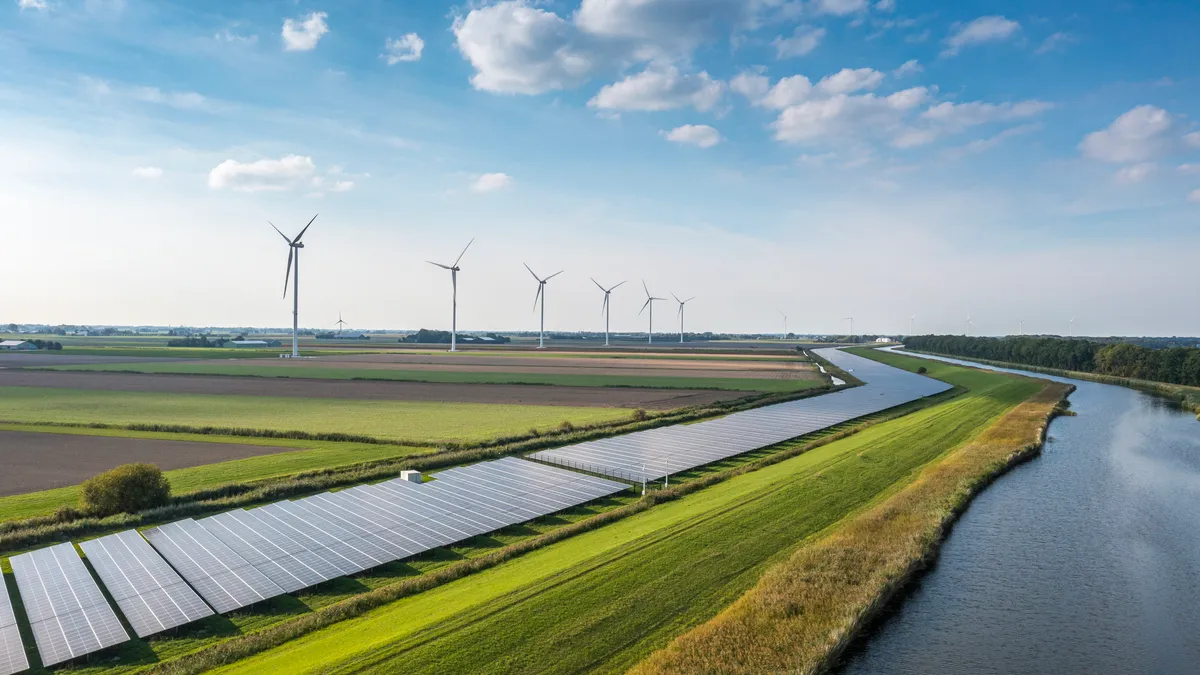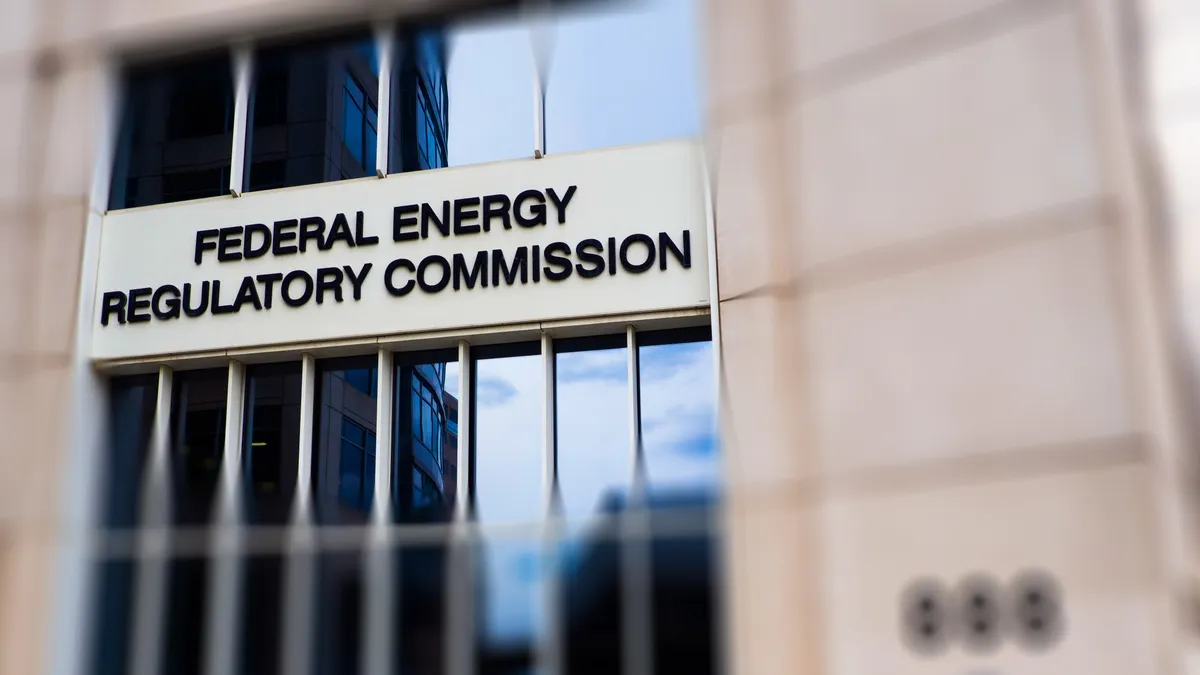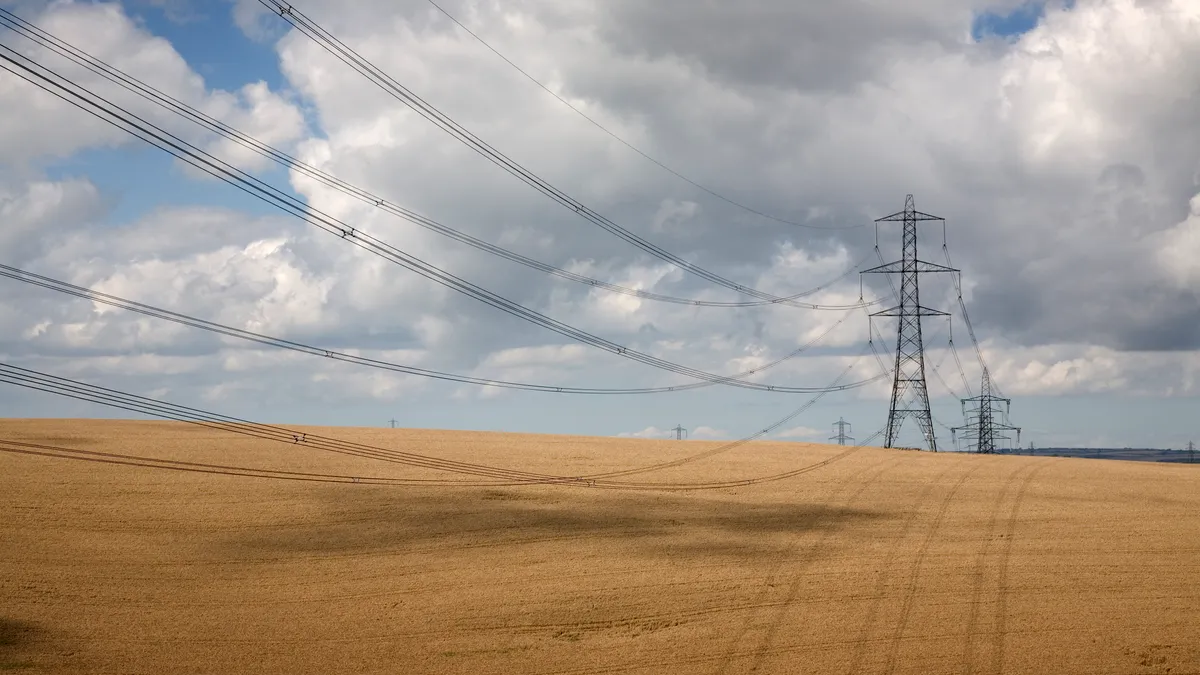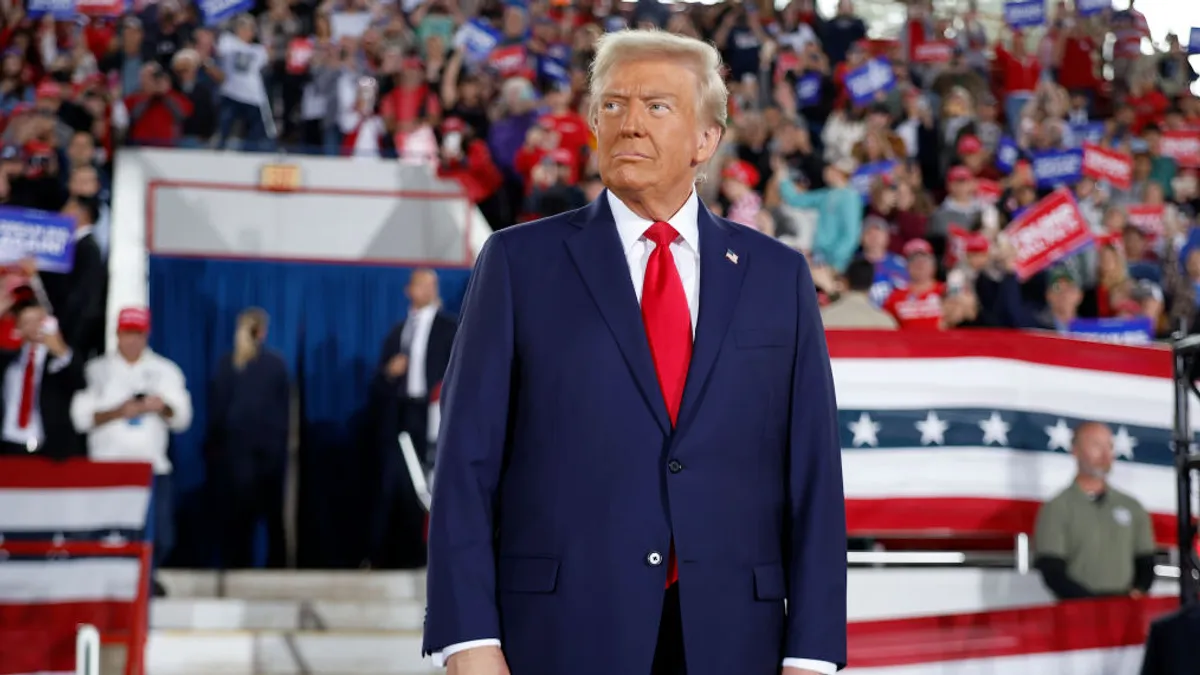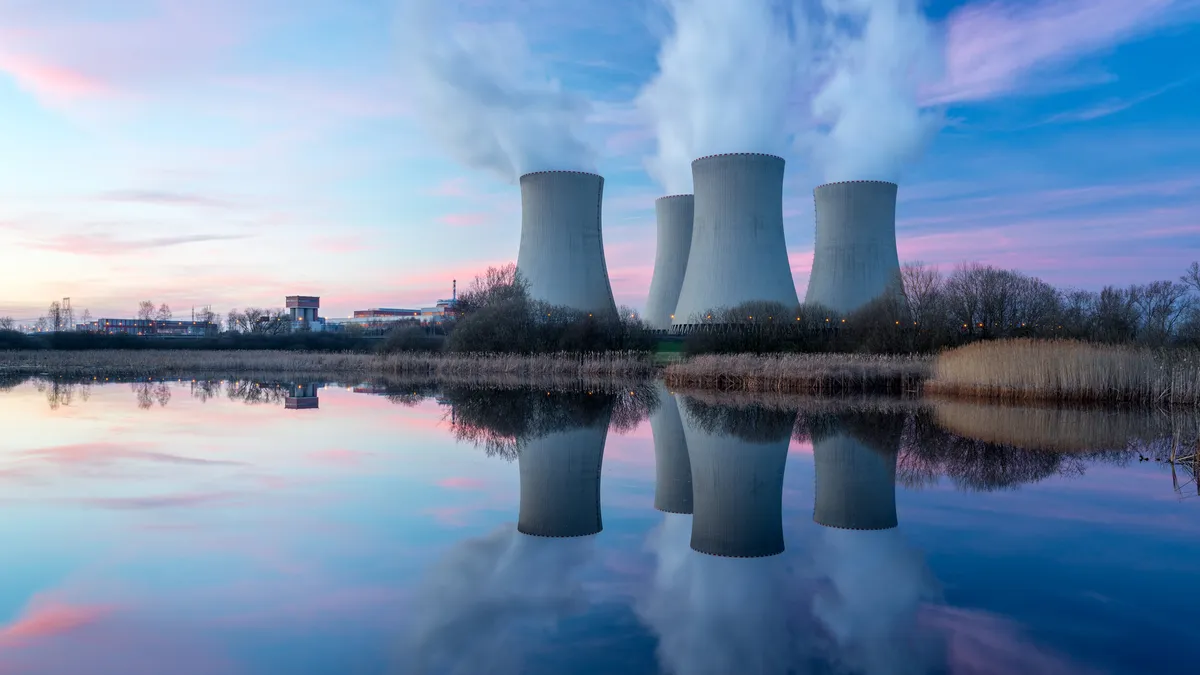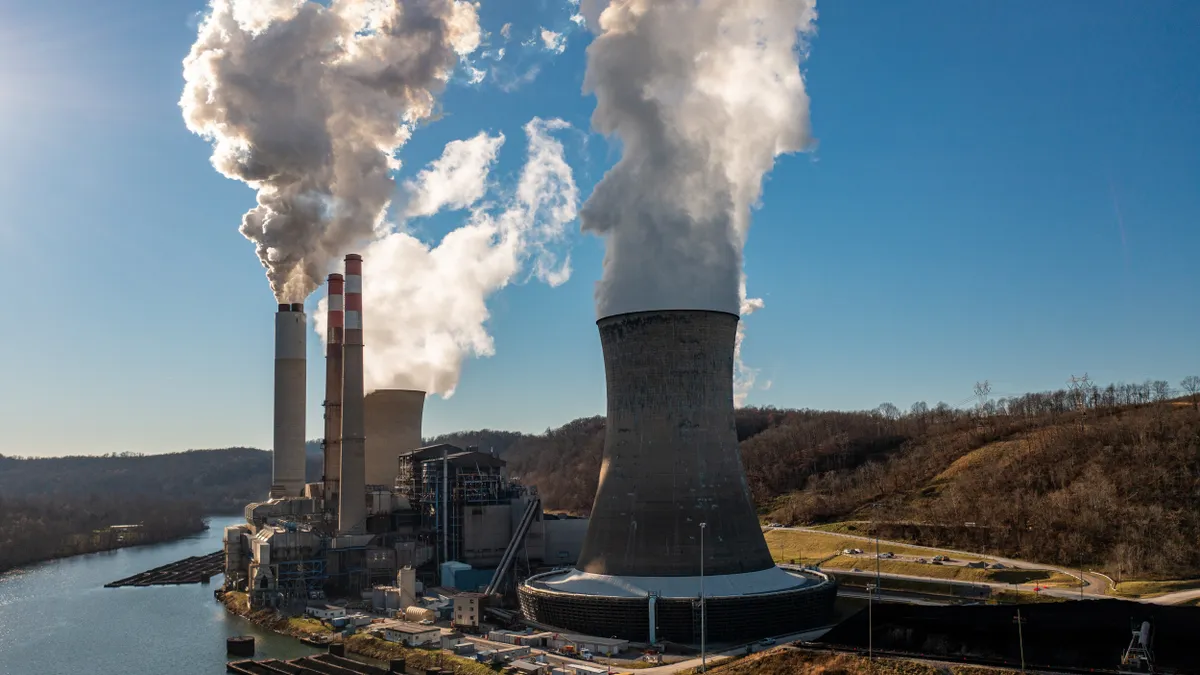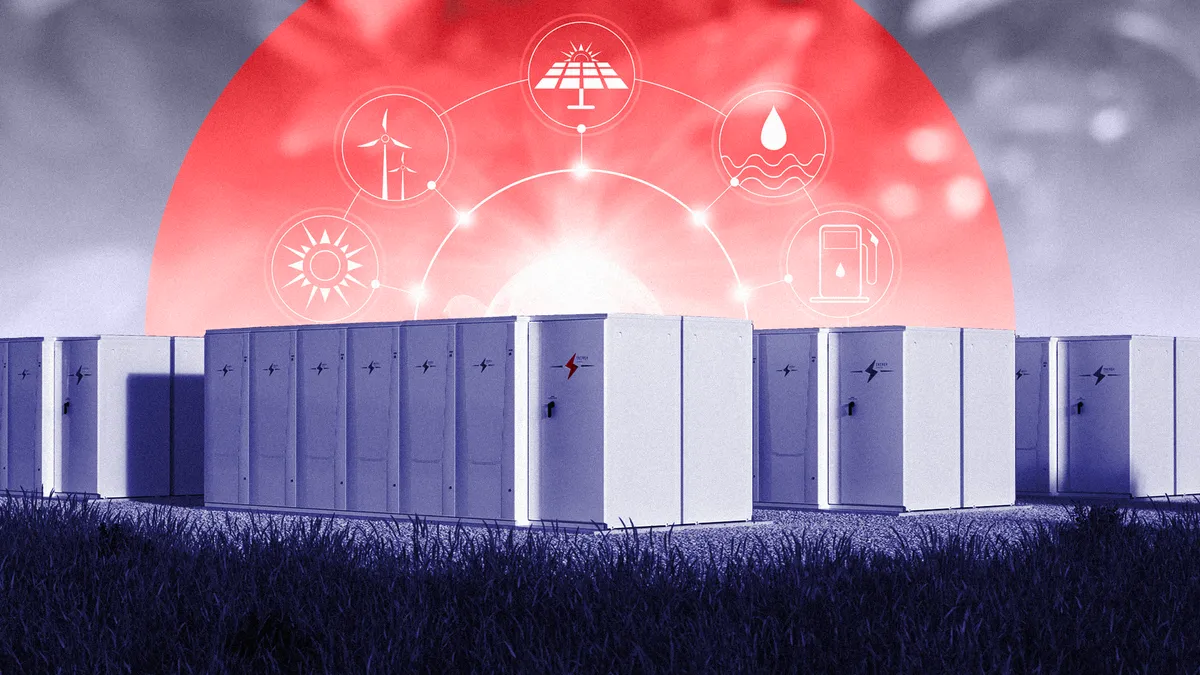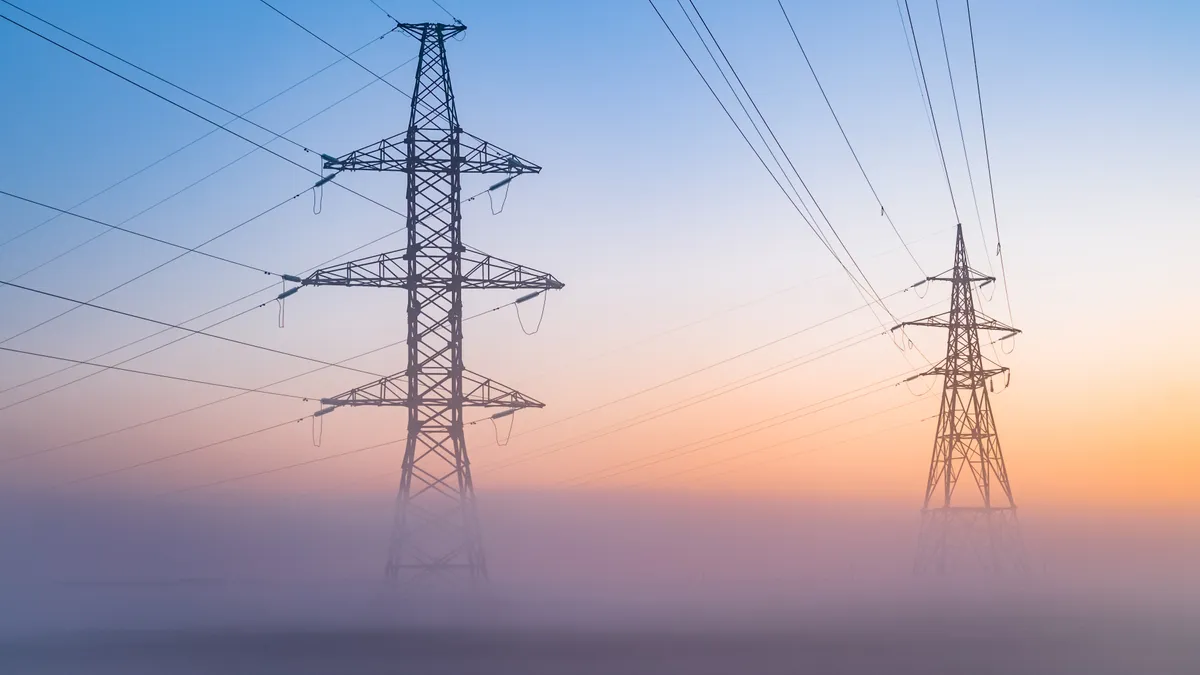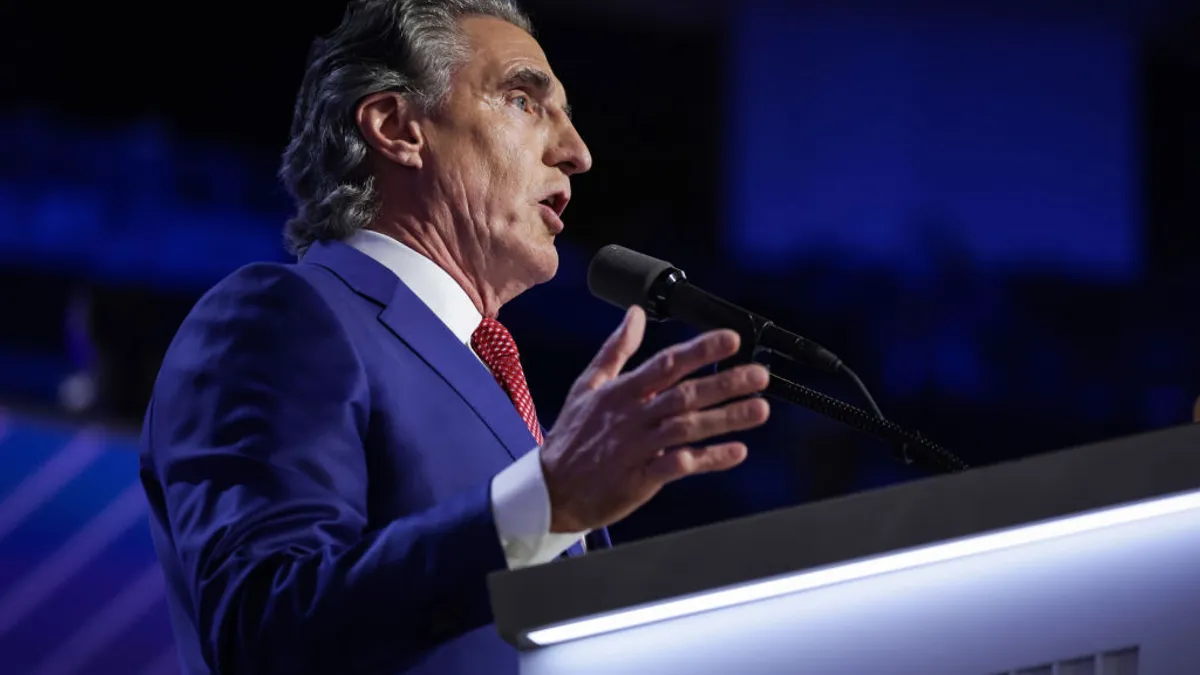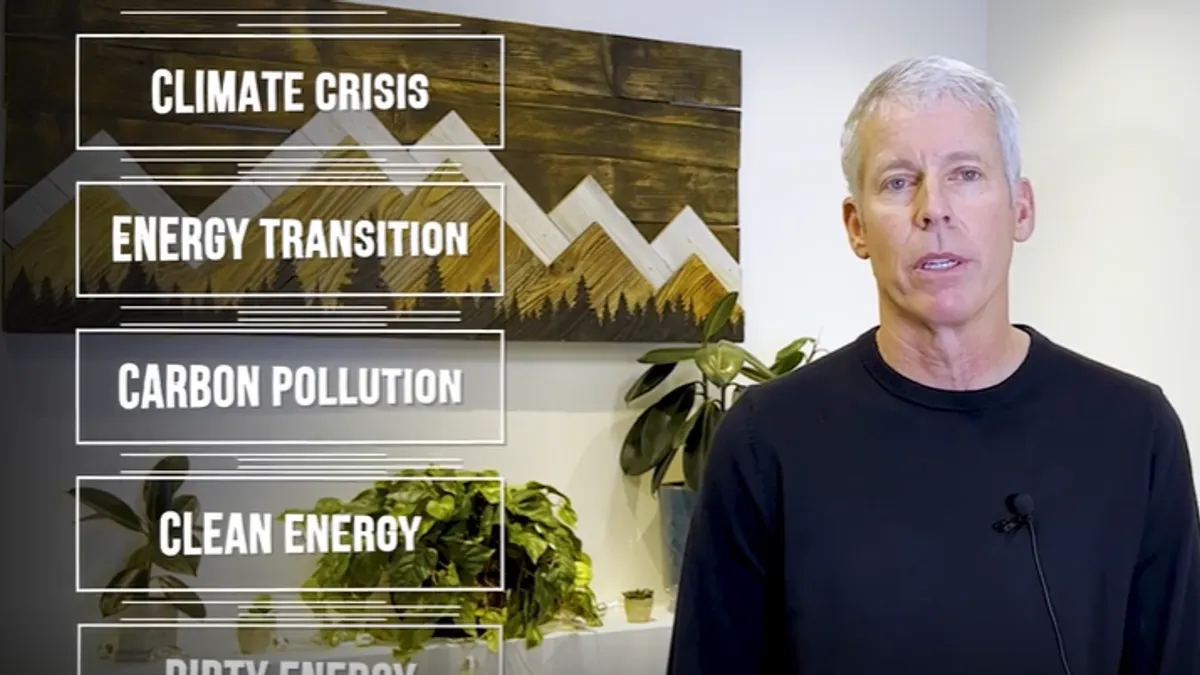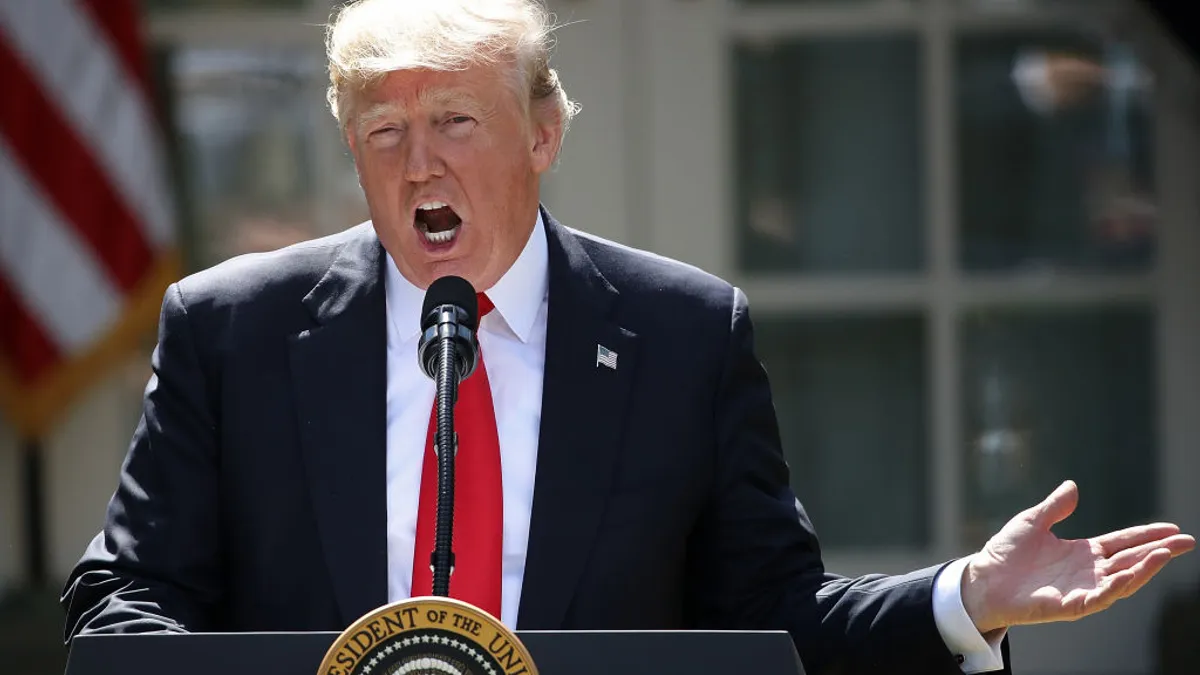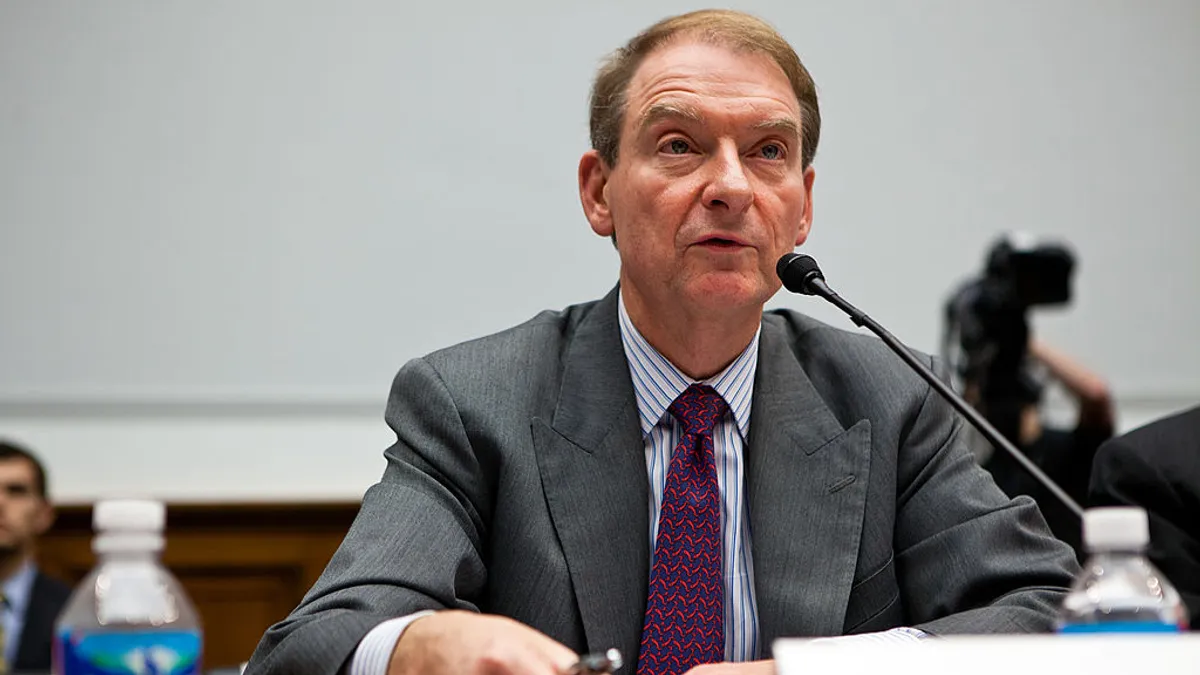Dive Brief:
- Despite broader market gains, renewable energy companies saw their stock values plummet on Wednesday amid fears that a newly victorious Trump administration could enact policies that erode the competitiveness of renewable energy.
- Although most renewable energy companies should recover — potentially quickly — from Wednesday's slump, industry analysts said. Indeed, some stocks experienced gains on Thursday morning, with solar developer Sunnova Energy nearly 5% and First Solar up more than 2%.
- Analysts are split on whether the coming change of administration will trigger a rush to close renewable energy deals in the final months of the year, or produce market stagnation as investors adopt a wait-and-see approach. But they generally agreed that demand for renewable energy will continue to increase amid ongoing load growth within the U.S.
Dive Insight:
Stock prices for renewable energy companies took massive hits Wednesday as traders awoke to the news that Republicans had seized the presidency, flipped the Senate and remained in the running for control of the House — with losses ranging from 5.25% at NextEra Energy, up to 51.56% at Sunnova Energy.
“Markets always move in an over-reactionary way, and I do believe the reactions we are seeing are pretty immediate and pretty exaggerated,” said Kevin Kang, a senior associate at Enverus Intelligence Research, said.
But there's also a potential that policy actions by the second Trump administration could cause renewable energy dealmaking to stagnate, company valuations to drop, and for renewable energy development costs to rise, industry analysts, including Kang, said.
Initial reactions have been based primarily on statements made by president-elect Donald Trump on the campaign trail, according to Raj Prabhu, CEO and co-founder of the Mercom Capital Group. A possible repeal of the Inflation Reduction Act is chief among investors' current concerns but is also relatively unlikely, given that a total repeal would harm key demographics that supported Trump, Prabhu said.
The potential imposition of additional tariffs on imported solar panels or steel is another headlining concern, and may be more likely to come to fruition given Trump's history and what appears to be growing bipartisan support for curtailing foreign imports, analysts said.
“That is a real fear in the market right now,” Prabhu said. “We already have a lot of issues, so if you add more tariffs and create trade issues, the inflationary effect, which is already bad, is going to be bad and create supply chain issues.”
Although the increasingly bipartisan push for more tariffs is tied to a desire to support domestic manufacturing, it is unlikely that clean energy manufacturers will be able to keep up with U.S. demand, said Becky Diffen, a partner at Norton Rose Fulbright.
“I don't think anybody thinks we can suddenly meet all the demand for battery projects, for solar projects, immediately in the U.S.,” Diffen said. “If you put significant tariffs out there, that will absolutely drive up prices.”
But where Kang and Prabhu anticipated potential stagnation in renewable energy markets, Diffen said the next two months could see a “tremendous increase in activity” in the renewable energy space as developers attempt to close deals ahead of inauguration.
Prabhu and Kang were less optimistic about the year-end outlook. While stocks might rebound relatively quickly as traders seek to take advantage of the sell-off, only a small handful of renewable energy companies are publicly traded, Prabhu said. For those that are privately held, closing transactions and financing deals requires an extended process — one they likely won't be able to wrap up in a mere two months. That will likely lead to a lull in dealmaking as developers and financiers wait to see what policies will emerge from the Trump administration, Prabhu said.
Longer-term, reduced policy support for renewable energy might actually help clear out the nation's interconnection queues, Kang said. “The only reason a lot of these companies were queuing up a lot of solar is because of the fact that the incentives exist, and it's no risk. It's close to zero risk to them,” he said, adding that while queues have already seen a slowdown “with the economic changes and policy changes you can expect, it will impact queue duration in a positive way for sure.”
Long interconnection queues and project delays have generally driven up prices for renewable energy power purchase agreements, so that and the expectation that interest rate cuts will continue could result in short-term cuts to PPA prices, Kang said. However, Kang said Enverus still expects PPA prices to remain relatively stable at their current rates in the face of rising load growth from electrification and data center expansion — trends he did not anticipate would be impacted by the Trump administration's likely approach to clean energy policy.


